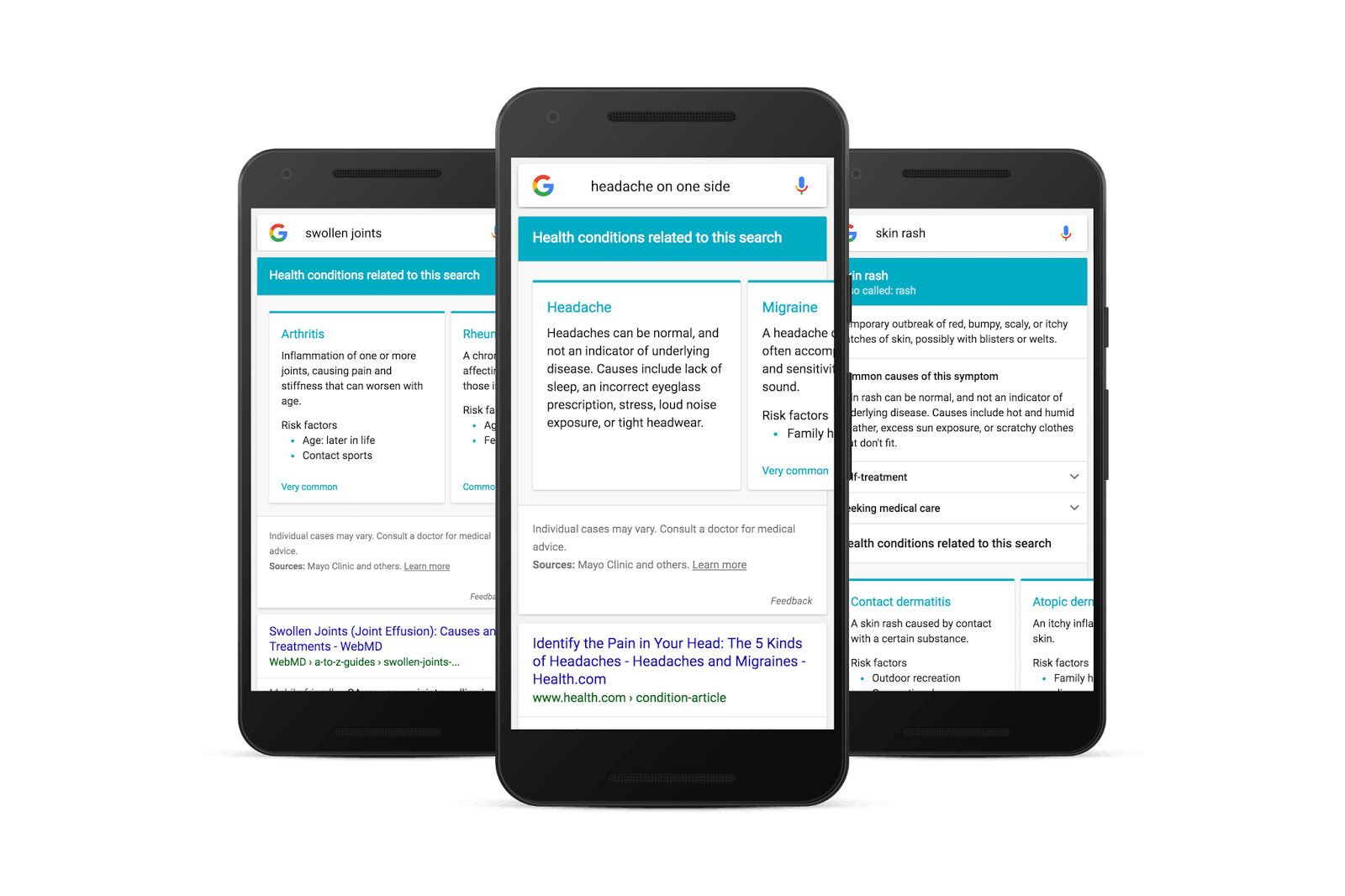Your Google search history is likely already full of ridiculous queries, but now it’s going to get a lot more personal; Google is ready to play doctor for all your ailments by generating symptom cards in response to medical-related searches.
The new feature is in response to the overwhelming amount of traffic that health queries generate for the search engine. According to Google, about one percent of the over 3.5 billion searches per day the service fields are symptom related.
Medical information cards will populate information relevant to a person’s search, in the same way Google puts information for sports scores, weather, and maps ahead of the typical search result links.
For example, if they just search for the term “headache,” Google will serve up a general description of the symptom and provide some basic treatment information. For more specific searches that might require more precise information, like “headache on one side,” Google will pull up related conditions that might be more relevant to the condition.
Google’s plan with the symptom cards is to help people navigate the often confusing results that medical queries can generate. Often times, searches will send people down a rabbit hole of shaky information and sketchy forums where anonymous individuals share everything from home remedies to unsubstantiated medical theories. And then there’s WebMD’s penchant for diagnosing everything as something far more dire than it usually is.
Instead of allowing users to be led to believe they’re dying regardless of their condition, Google will aim to surface high-quality medical information it has collected from doctors and medical experts. The results it shares have been vetted by members Harvard Medical School and Mayo Clinic to ensure the validity of the information.
Web searches should start populating the cards when searching for symptom information on the web and mobile devices over the next several days. Google is rolling out the results in English first, with more symptoms and languages to be added later.
H/T 9to5Google



